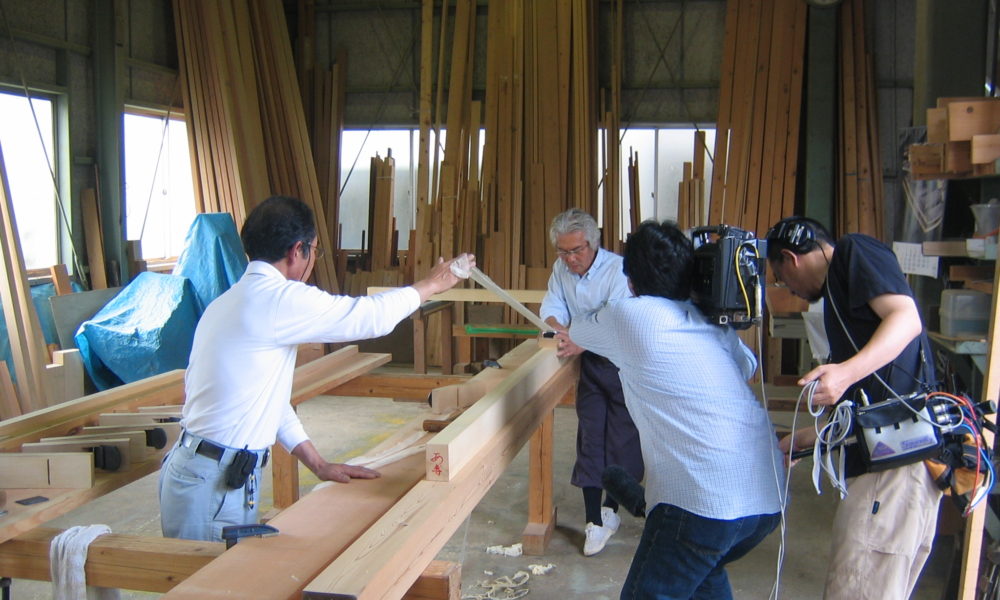
Words to Live by: Carpenter Eiichiro Amakasu
Interview by Judit Kawaguchi
Be picky about the type of work you accept! Sure, you might not get rich that way but you will improve your skills and develop a reputation for excellent taste and professionalism. The only jobs I accept are the ones that start with nothing or something great. I used to get offers to renovate family homes that were built 10 or 20 years previously. I refused those because the only way to fix such buildings was to demolish them and start from scratch, but that’s not what the owners had in mind. For many years I had no income for six months or more but I did not change my philosophy.
If you bring the women to your side, you’ll be OK! Wives decide everything in Japan so as long as we get along with them, the job is easy.
Tools are family. I keep them for life. When my blades get very small, just a few centimeters, I put them neatly in boxes and keep them at home as my treasures. At night, I open those boxes and look at my old blades. This is my healing time. Better than TV! If I get a headache, I take out my box and once I see the little blades, my pain is gone.
Wonderful assignments are worth waiting for. In 2009 I was invited to create a traditional Japanese chashitsu or teahouse at the Ashmolean Museum of Art and Archaeology at the University of Oxford. We built the whole structure in Japan, then we took it apart, shipped it to Oxford and put it together there. This way of working is usual even in Japan but it was my first experience rebuilding one abroad.
Unless we keep polishing our skills and techniques, they get lost. Ise Jingu, our most sacred Shinto shrine complex, located in Mie prefecture, was established 2000 years ago and records show that it has been rebuilt every twenty years for the past 1300 years. Some people might wonder why the buildings and the bridge must be rebuilt so often. One reason is the idea of renewal which is central to Shintoism. The other is that this is the only way to ensure that the engineering, woodworking and art techniques that are used here are passed onto the next generation of artisans. This is what has been keeping Japanese art and carpentry alive.
If the home is good, the job goes well. When a wife is always in a good mood and creates a peaceful home, the husband is happy and can concentrate on his mission. He will definitely succeed. Since we met 40 years ago, my wife has been such a woman. She is my everything. She even prepares the best bento for me every day.
Don’t stand out; leave that for your work. I never liked sticking out. I prefer to be quietly working in the background. But when I use my kanna, people gather around me. That’s the only time I can stand attention because I am happy to share my technique.
My wife made me into the man I am. That is what women do: they raise their men. She is seven years older than me but doesn’t even look more than 50. Beautiful! And she is always laughing, always positive. That is what turned me from a morose carpenter into a man that usually has a smile on his face. Her words always ring in my ear: “ Be kind. Smile at people. Just relax. Stay calm. All is OK.” Guess what? It is. Thanks to her.
If you do a good job, you don’t need to advertise. Your work becomes the ad. Every home I built was requested by someone who has seen my previous buildings or have heard of me from others.
Bad at business should be a compliment. That’s me. I always keep my own thinking and I don’t do anything just for money. I work for beauty, this is why I only accept amazing commissions. They might be very expensive homes but I use up the budget for materials that nobody would dare ordering. I want a masterpiece and I want to be proud of my work. This is why all my clients turn into lifelong friends.
This QuoteBad at business should be a compliment. — Eiichiro Amakasu